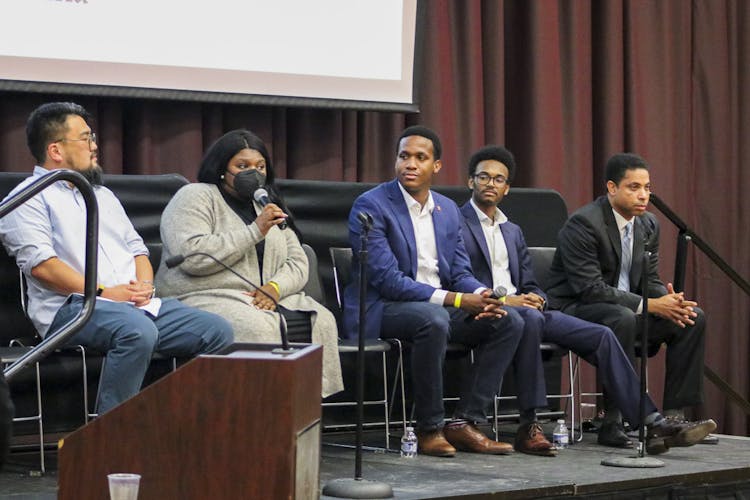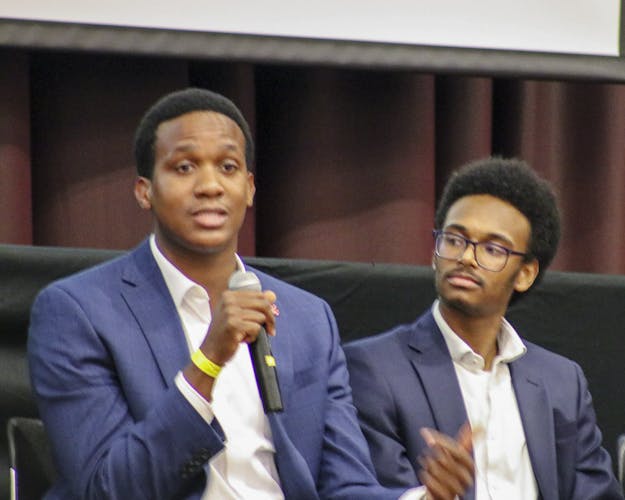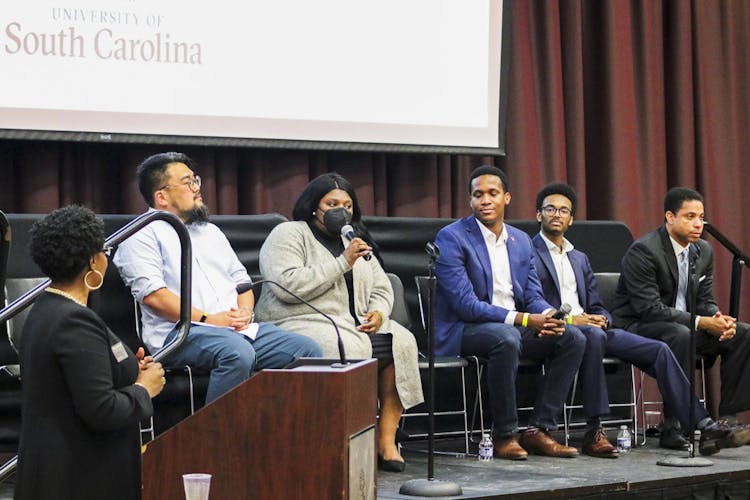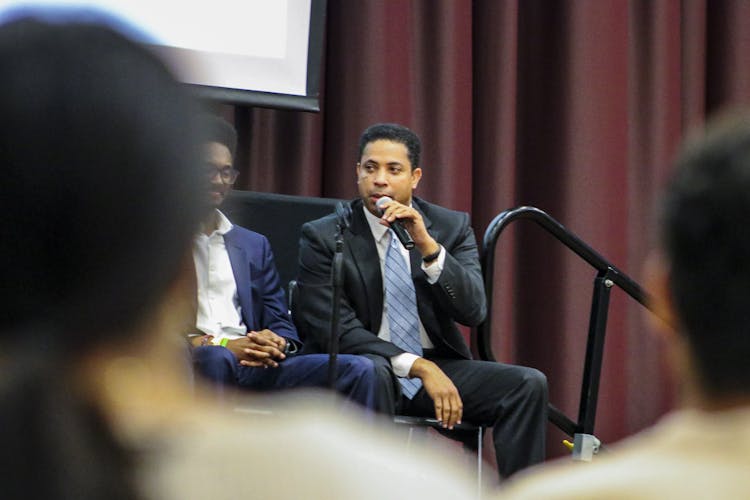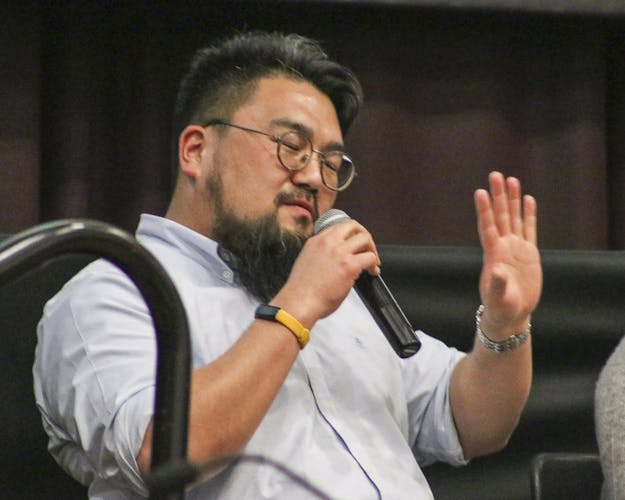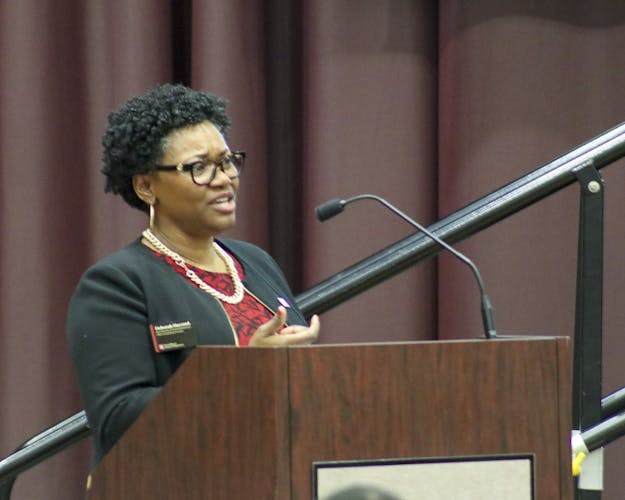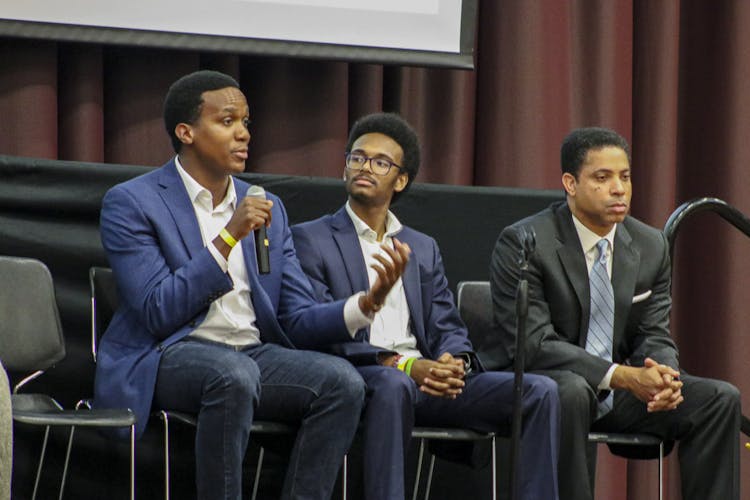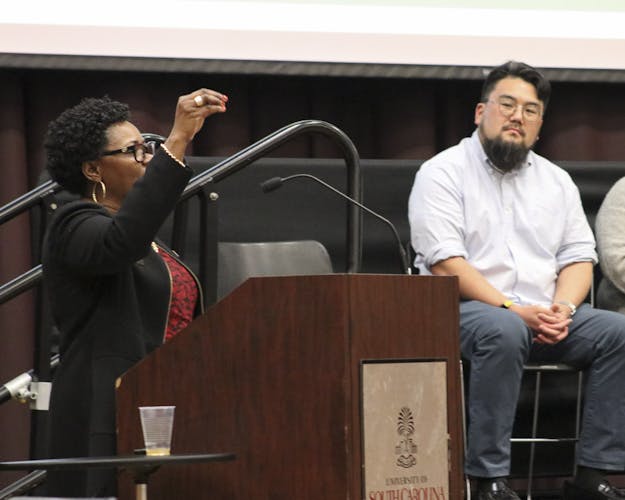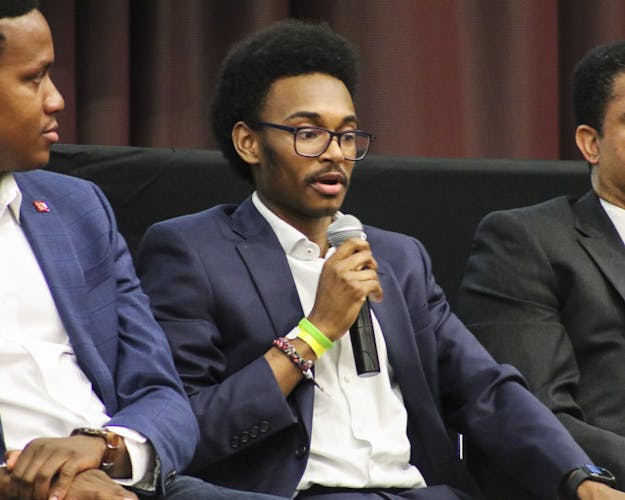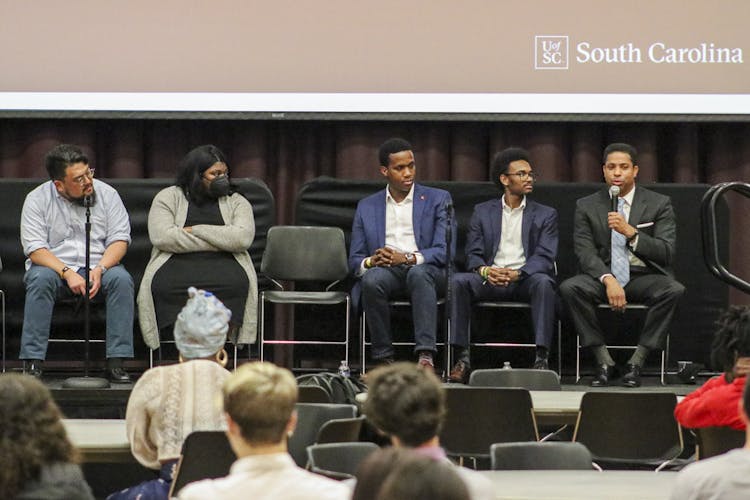The "Being Black in the Workspace" event held in the Russell House Ballroom on Monday night invited students and professionals to discuss diversity challenges throughout education and careers.
The event was a collaboration between The Black Business Student Association, Alpha Kappa Psi and the Office of Diversity and Inclusion from the Darla Moore School of Business. USC faculty and alumni were invited to share their experiences as Black individuals, engage in discourse and network with students.
The panelists covered multiple career fields, ranging from university professors to consultants to gallery owners, and spoke about biases, sticking up for peers and their experiences growing up as minorities.
Panelist Josh Pearson, a commercial specialist and diversity consultant at Aon Insurance, said he was proud of the diversity of the audience who attended the lecture.
“I graduated in 2021, and I don’t think I’ve seen as many people, as many different ethnicities, religions, so on so forth (in a room),” Josh Pearson, a commercial specialist and diversity consultant at Aon Insurance, said.
Harry Singleton, an adjunct professor of African American and Religious studies at USC said he hopes to see similar diversity within South Carolina's workplaces that reflect the diversity of the state. According to Singleton Black professors only make up 3 to 4% of the faculty at USC, while the Black population in South Carolina equates to 33%.
Deborah Hazzard, the associate dean of Diversity and Inclusion at the Darla Moore School of Business, said there are many challenges associated with being a Black woman in the business field and told a story about her first day teaching MGMT 470 at USC.
“I’m getting ready to start teaching, and one student comes up to me and says ‘Are you just here until the real professor gets here?’” Hazzard said.
Hazzard was speechless, but said she still politely introduced herself to the student. She said this is a "conscious bias" that her and other Black women face regularly. Hazzard encouraged other individuals to open their minds and change their understanding.
"It's time for us to kind of change those perceptions and do that by interacting and engaging with people that we haven't interacted with before," Hazzard said.
Seulghee Lee, an assistant professor of African American studies and English, said there is great importance in sticking up for people and fighting against racism.
“My colleagues will say all kinds of weird, micro-aggressive, anti-Black things because, in their universe, an Asian American, to them, is closer to them than they are to a Black person,” Lee said.
Lee said that, because he is an Asian American, he must endure and fight back against these statements while also navigating his colleagues' anti-Asian sentiment.
The panelists explained that this unconscious bias is something all humans have and have had for a long time. While having a bias doesn’t make a person "bad," people still need to differentiate between biases that do and do not hold up against today's standards.
"We need to ask ourselves, how does the bias that we innately possess influence the decisions that we pertain?," Hazzard said.
Hazzard and Singleton, along with others, look to move forward with the hope of eliminating conscious biases and discrimination.
Members of the Alpha Kappa Psi business fraternity said they were inspired by the event to continue diversifying their organization.
“Being part of Alpha Kappa Psi, a lot of our recruitment process, we want to be as diverse as possible,” Natalia Berti, a second-year supply chain student, said. “Having more diverse communities, you’re able to learn and grow from each other."
Hazzard hopes that in the future people can work together regardless of their differences.
“There is literally more that unites us than separates us,” Hazzard said. “No matter what we looked like, no matter what the color of our skin, we’re human beings.”

